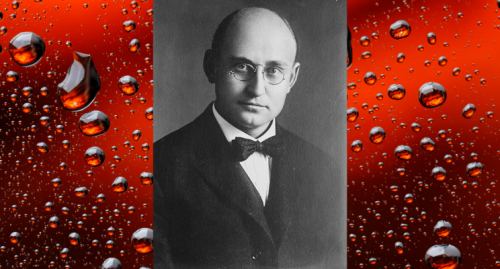
On this day in psychology in 1911, The trial of U.S. v. Forty Barrels and Twenty Kegs of Coca-Cola began. This famous federal lawsuit filed against the Coca-Cola Company of Atlanta, Georgia under the 1906 food and drugs act alleged that Coca-Cola ‘contained an added poisonous or added deleterious ingredient, caffeine which might render the product injurious to health.’
Prior to the trial the Coca-Cola Company called upon psychologist Harry Hollingworth for an opinion as to the influence of caffeine on mental and motor processes. In the absence of any reliable data on the subject, Hollingworth conducted a series of experiments to test the influence of caffeine on such things as perception and association, attention and judgment, steadiness, speed and coordination. Hollingworth testified that 'If the constant use of caffeine in moderate amounts would prove deleterious, some indication of such effect would have shown itself in the careful study of performance in tests covering a wide range of mental and motor processes.’
In the fourth week of the trial the case was dismissed, and for Coca-Cola, the rest, as they say, is history. By providing psychological information for the purpose of facilitating a legal decision, Hollingworth’s testimony represents a landmark case in the history of forensic psychology. Hollingworth went on to become a renowned applied psychologist, conducting pioneering research within the field of industrial/organizational psychology and advertising. He was elected President of the American Psychological Association in 1927.
VISIT –> www.all-about-forensic-psychology.com for quality forensic psychology information and resources.
Nenhum comentário:
Postar um comentário